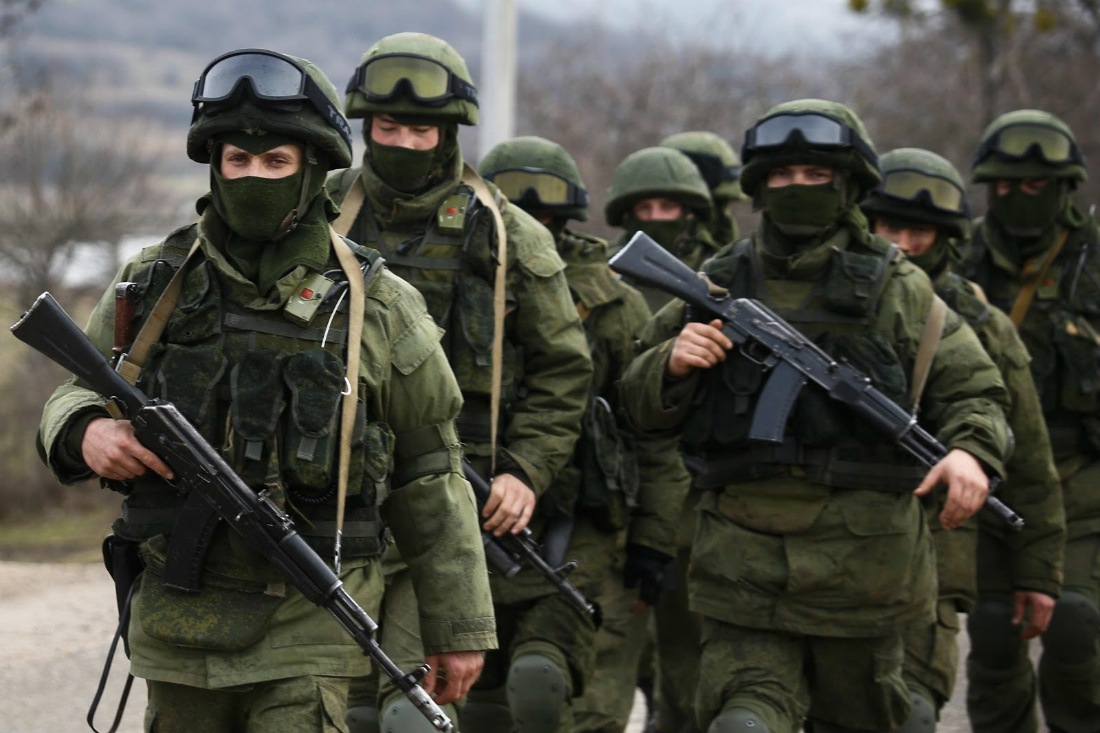(NationalSecurity.news) Following Russia’s stunningly successful and wholly unexpected incursion into eastern Ukraine the Pentagon and, the U.S. Army in particular, has had to step back and reassess the military capabilities of its Cold War nemesis. According to a report from Politico Magazine, planners are extremely alarmed and concerned by what they have seen.
Top Army brass have come to the realization that Moscow’s military has nearly recovered from its moribund and dilapidated state following the collapse of the Soviet Union, thanks in large part to heavy investments in new weapons and technology guided largely by President Vladimir Putin. Now, they say – as the Ukraine ‘invasion’ demonstrates, the Russian military has achieved new competence and, in some areas, parity with U.S. forces.
As such, Army Lt. Gen. H.R. McMaster, the service’s futurist, has convened a high-level panel “intended to figure out how the Army should adapt to this Russian wake-up call,” Politico Magazine reported. The panel is an admission of failure on the Army’s part, certainly, but also the U.S. government in general.
“It is clear that while our Army was engaged in Afghanistan and Iraq, Russia studied U.S. capabilities and vulnerabilities and embarked on an ambitious and largely successful modernization effort,” McMaster told the Senate Armed Services Committee recently. “In Ukraine, for example, the combination of unmanned aerial systems and offensive cyber and advanced electronic warfare capabilities depict a high degree of technological sophistication.”
In Ukraine, a rapidly mobilized, Russian-supplied ‘rebel army’ stormed into the country’s eastern sector with tanks that were surprisingly lethal, as well as artillery and anti-tank weapons. The force also unleashed swarms of unmanned aerial vehicles and used cyberwarfare to shut down battlefield communications and GPS.
U.S. military planners have been discussing these and other developments in Ukraine, as well as additional studies conducted by other experts inside and outside government in the U.S. and Europe. The talks have produced some early takeaways, Politico Magazine reported, citing a copy of a briefing given recently to top leadership at the Pentagon and in European capitals.
In fact, U.S. military and intelligence officials believe that Russia now has some key advantages.
First, more lightly armored vehicles like the U.S. Army as deployed to Iraq and Afghanistan in great numbers are extremely vulnerable to Moscow’s newest weapons. Also, main battle tanks like Russia’s T-90, which were once thought to be on their way out, are still decisive factors on the battlefield.
More:
- Pentagon is pushing for new, exotic weapons to deter Russia, China
- Syria conflict shows Russian military is getting better – and NATO is reacting
- S. quietly shipping more and lethal weapons to Europe with addition of tanks, artillery in secret Norwegian caves
McMaster noted further that “Russia possesses a variety of rocket, missile and cannon artillery systems that outrange and are more lethal than U.S. Army artillery systems and munitions,” Politico Magazine reported.
What’s more, Russian tanks are so improved that they are “largely invulnerable to anti-tank missiles,” says retired General Wesley Clark, who served as NATO commander from 1997 to 2000 and has been trying to get the Pentagon’s attention over what the Ukraine conflict means for the American military.
Another facet of warfare in use there that has surprised U.S. military planners: the effectiveness of Russia’s efforts to undermine Ukrainian institutions – part of what experts call “hybrid warfare” that combines traditional military power with covert efforts to undermine an enemy’s government.
In response, McMasters commissioned the Russia New Generation Warfare Study, whose participants have already made a number of unpublicized visits to the front lines in Ukraine, with the goal of sparking a widespread rethinking – and, potentially, a redesigning – of the U.S. Army, in the event it is forced to confront the Russian army in Eastern Europe. Though McMaster’s idea, the effort is being headed up by Brig. Gen. Peter L. Jones, commandant of the U.S. Army Infantry School at Fort Benning, Ga.
The study’s results will likely have a major impact on the Army’s size, scope, training and equipment. Some of the earliest-learned lessons will be put to the test during a major war game planned for June in Poland. In some, this is “all designed to demonstrate that we are in the game,” retired Army Chief of Staff Gen. Gordon Sullivan told Politico Magazine.
Experts familiar with the study and the developments in Ukraine say that the Russians have done what the former Soviet Union did during the Vietnam war: As America’s attention was diverted, Moscow took advantage by creating new generations of weapons and altering military strategy, catching the U.S. Army by surprise.
See also:
NationalSecurity.news is part of the USA Features Media network. Follow us on Google+.


